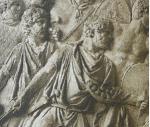You are here
Nobel Prize for a noble woman
Mar 31,2019 - Last updated at Mar 31,2019
One of the marvels of the Internet age is that rarely a week goes by without someone inviting you to sign a petition supporting one cause or another. I confess that I often allow these messages to be overtaken by events; but this week I signed the petition within the blink of an eye and immediately posted it to recruit more signatures.
The petition was to award Jacinda Ardern, prime minister of New Zealand, the Nobel Prize for her leadership after the terrorist attack against the mosques at Christchurch. Within a couple of days, 250,000 people all over the world had signed the petition.
It is worth reflecting on why the prime minister of a small island country, so far out of the way that the only land mass south of it is Antarctica, should have become an inspirational role model to so many people worldwide.
Simply put, it is because Jacinda Ardern rewrote the book on how world leaders should react to a terrorist attack.
The perpetrator was declared a terrorist and the media was discouraged from unleashing its morbid obsession with details about him. “The person who has perpetrated this violence against us is not [us].” “He may seek notoriety, but we in New Zealand will give him nothing, not even his name.”
From the first instant, her message was unifying. The victims were not a community apart. The only distinction that was made between them and the rest of New Zealand’s population was by referring to them as those “directly affected by this shooting”.
The prime minister’s exact words were: “Many of those who will have been directly affected by this shooting may be migrants to New Zealand; they may even be refugees here... They have chosen to make New Zealand their home, and it is their home. They are us.”
As if by magic, the simple pronoun “us” united the people of New Zealand, and with them millions worldwide.
You see, the world today is getting dangerously polarised. Walls and barriers are going up everywhere, physically and in our minds. This is a recipe for disaster, and many people are rightly worried. Therefore, a leader with a unifying call was like a balm.
The call was also personal, so no one could remain indifferent. The attack was not against an abstract and possibly contentious construct such as “this great nation”, “democracy” or “our way of life”. It was against “us”.
New Zealanders were called on to fight hatred with compassion and kindness, so they stood and gave of their best.
This leadership was reminiscent of 1990, when Nelson Mandela was released after 27 years in prison. He did not call for revenge, but for human compassion (that) binds us the one to the other, as human beings.
Such precious instances are bright milestones that make the world more consciousness of our humanity, the one thing that unites us. The whole world should express appreciation of such leadership, and the Noble Prize would be a fitting tribute.












